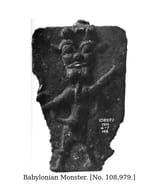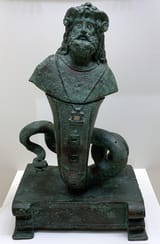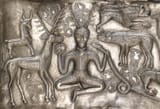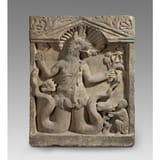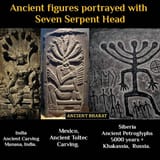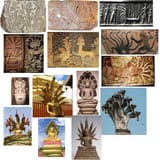>>41122311
The Sumerian Enki-Ea is mistaken for a water god, forgetting that, according to Near Eastern lore, water surrounds our world, meaning we are literally under a dome. In the myth, Enki-Ea builds his home over the Abzu Abyss, but it's not underground. The Abzu Abyss is our world, and his home is above. Apparently, the Gnostics already knew this, which is why the demiurge was sometimes depicted as an ibex, not a lion-like creature. The ibex is this god's sacred animal, although it all depends on perception; it's something like the Chinese dragon/Dacian dragon (Chnoubis).
In Babylon, Enki-Ea replaced Anu and Enlil because they knew something.
Also, in Old Hebrew, Anokhi/Anakhu/Anaku/Anaki means "I am." You can open the line-by-line translation and find where he says "I" in Genesis and Google it:
https://biblehub.com/hebrew/595.htm
The Talmudic "I/I Am" is written as אָֽנֹכִ֖י
And if you Google it, Google will give you both pages from Scripture and pages related to Enki-Ea.
he.wiktionary.org/wiki/אנכי
he.wikipedia.org/wiki/אנכי
Next, "LORD" is יְהוָ֣ה YAH-VEH, often shortened to יְה. This is how the name Ea can be translated. Considering that the pronunciation of vowels changes over time, we are most likely dealing with a connection between Enki and Ea.
But there's also the theory that the Tetragrammaton was generally designated by vowels alone, which is why the Gnostics also had a name like IAO (Ἰαω) and related names that play on and form a secret name.
Perhaps Anoki Ea/Iya/Ya essentially means "I am Ἰαω."
There's a myth about Enki-Ea confusing languages.
Kyle Odom said they live underground and inside the moon.
According to Islamic legend, the moon split in two at Muhammad's request.
When American astronauts landed there, it rang for a very long time.
It's noteworthy that there is also a Sumerian god, Sin(Moon), which sounds similar to Sinai and Zion (z = s).






